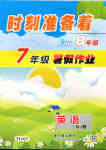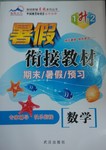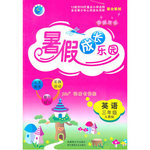题目内容
Do you know who shaped President Obama? It was his unconventional(非凡的)mother——Ann Soetoro. She was charming(有魅力的)and liked to laugh. She was a tireless and hardworking woman. When Obama was young, his mother said, “He can do anything he wants in the world, even be president of the USA.” And she was right.
When Obama was a little boy, his mother paid much attention to manners(礼仪). So Obama was very polite. He got up to study at 5 a.m. every morning. His mother typed and corrected his homework for him. Besides, his mother let him know the sense of duty to the world, the importance of hard work and the need to give back. Just as Obama said, “Like most of my values(价值观),I learned about empathy(同情) from my mother.” When he was nine, his mother sent him to Hawaii, where she soon joined him. In 1975, his mother left him to grandparents, so as to return to Indonesia(印度尼西亚) to begin her PH.D. field work(为博士学位做实地考察)。
Obama’s mother was optimistic and easygoing. This great mother produced an excellent son.
47. What’s the best title of the passage?
A. Great Mother Made Obama Succeed
B. Hardworking Obama.
C. Ann Soetoro Got Ph.D。
D. Obama’s Mother Was Easygoing.
48. Which of the following is true?
A. When he was nine, his mother and he went to Hawaii together.
B. Obama didn’t study hard when he was young.
C. In 1975, Obama’s mother returned to Indonesia to begin her Ph.D. field work.
D. His mother didn’t want him to become President of the USA.
49. According to the passage, we know that his mother .
A. was a great mother and she knew how to educate her children.
B. didn’t like to study herself.
C. was so busy that she had no time to look after her children.
D. wasn’t hopeful about the future.
50. The underlined word “optimistic” means .
A. 消极的 B. 乐观的 C. 自私的 D. 善良的
51. When Obama was young, his mother let him know .
A. the sense of duty to the world
B. the importance of hard work
C. the need to give back
D. A, B and C
ACABD

 时刻准备着暑假作业原子能出版社系列答案
时刻准备着暑假作业原子能出版社系列答案 暑假衔接教材期末暑假预习武汉出版社系列答案
暑假衔接教材期末暑假预习武汉出版社系列答案 假期作业暑假成长乐园新疆青少年出版社系列答案
假期作业暑假成长乐园新疆青少年出版社系列答案Long, long ago there was a very foolish thief. Do you know what he did one day? When he wanted to steal (偷) the bell on his neighbor’s door, he walked up to the door, took hold of (抓住) the bell and pulled hard. The bell made a very loud noise. The thief was afraid and went home.
Then he sat down to think, “I must do something about the noise,” he said. He thought and thought. At last he had an idea. “Ah, I’ll put some cotton in my ears. Then I won’t be able to hear the noise.” The next day he went to the door of his neighbor, and took hold of the bell. This time he pulled even harder. The bell rang loudly, but the thief did not hear anything. With another hard pull he got the bell out. Just then the neighbor came running out. “Steal my bell? I’ll teach you a lesson (教训),”the angry man shouted. And he hit the thief on the nose.
The foolish thief did not know how the neighbor found out he was stealing the bell. “Why did he come out just then?” he wondered (感到疑惑).
【小题1】The thief was trying to get .
| A.his neighbor | B.his neighbor’s doorbell |
| C.some cotton | D.a door with a bell on it |
| A.safe | B.difficult | C.dangerous | D.easy |
| A.he knew his doorbell was being stolen |
| B.he thought someone was eager (渴望的) to visit him |
| C.He realized (意识到) something strange happened |
| D.Both B and C |
| A.give him lessons | B.punish (惩罚) him for stealing |
| C.help him with the bell | D.be his teacher |
| A.The thief understood why he was hit on the nose. |
| B.The thief knew why the neighbor came out. |
| C.The thief thought the neighbor could not hear the bell. |
| D.The thief didn’t want to know why the neighbor ran out just at the time he stole the doorbell. |